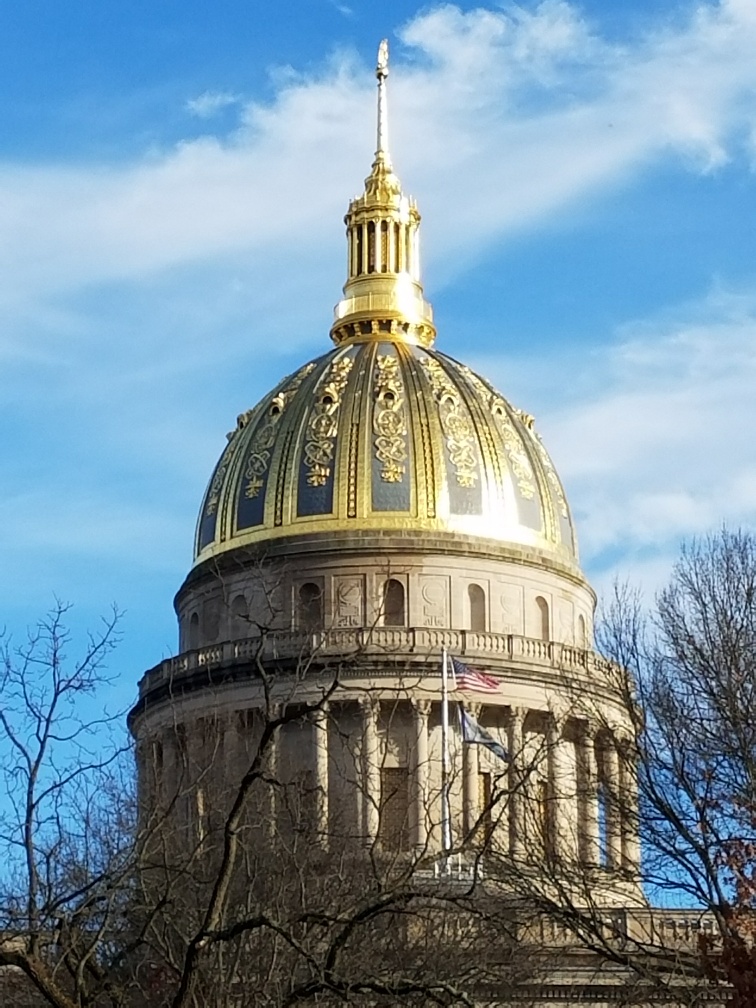- Like
- Digg
- Del
- Tumblr
- VKontakte
- Buffer
- Love This
- Odnoklassniki
- Meneame
- Blogger
- Amazon
- Yahoo Mail
- Gmail
- AOL
- Newsvine
- HackerNews
- Evernote
- MySpace
- Mail.ru
- Viadeo
- Line
- Comments
- Yummly
- SMS
- Viber
- Telegram
- Subscribe
- Skype
- Facebook Messenger
- Kakao
- LiveJournal
- Yammer
- Edgar
- Fintel
- Mix
- Instapaper
- Copy Link
Here’s a quick update on several bills we wrote about last week.
Redistricting – HB 2383, which would specify factors that can (and cannot) consider in the redistricting process, was finally reported to the House floor late last week after being passed by the House Judiciary Committee a week earlier. The bill was supposed to be on second reading (amendment stage) today, but was moved to the House’s inactive list presumably because the House leadership wants to avoid a lengthy floor debate on an amendment proposed by Delegate Mike Pushkin (D-Kanawha) that would honor the original intent of the bill by establish an independent commission tasked with drawing legislative and congressional district maps. We’ll continue to keep you posted and let you know if the bill advances with Crossover Day (the deadline for bills to be out of the house of origin) fast approaching.
Co-Tenancy – This bill (HB 4268), which is one of a series of oil and gas development bills that have been introduced in various forms and degrees in recent sessions, and which is sometimes referred to as “forced pooling” passed the House well ahead of Crossover Day (the deadline for bills to be out of the house of origin) and cleared its first hurdle in the Senate last week with approval by the Senate Energy, Industry, and Mining Committee.
The next step in the process for HB 4268 is consideration by the Senate Judiciary Committee, which was expected to take up the bill later this week. However, in an interesting twist, Governor Justice urged the Senate to reject the bill, saying he was strongly considering rejecting it and calling the Legislature into special session “to find a way out through co-tenancy and joint development and the mineral rights people … you’ve got to find a way that satisfies everybody and raises the severance tax on natural gas” in order to provide teachers and state employees with raises, and fix PEIA. The Governor’s proposal was not well received by legislators and other interested parties.
LEEP – HB 2534, the Local Energy Efficiency Partnership (LEEP) Act appears to be dead for this legislative session. The bill passed out of the House Energy Committee on Tuesday, taking us one step closer to growing energy efficiency jobs in West Virginia,but unfortunately, the bill didn’t make it onto the House Finance Committee agenda in time to be considered and sent to the full House for a vote.
Judicial Budget Amendment – (SJR 3), which would amend the state constitution to give the Legislature oversight of the judiciary’s budget passed the Senate overwhelmingly, was taken up today and passed by the House Finance Committee. As currently proposed the amendment includes a “Kansas clause” intended to address concerns about retaliation by the Legislature against the judiciary if the Court rules against the Legislature in a case. In Kansas, the State Supreme Court ruled against the Legislature in an education funding case and the Courts budget was nullified.
The proposed constitutional amendment amendment says the “the Legislature may not make any law that conditions the increase or decrease of the Judiciary upon a particular ruling, order, or decision of a court of this state.” However, despite the well intentioned “Kansas clause,” the West Virginia Legislature could retaliate with budget cuts without overtly making that connection.
Although a number of legislators have expressed concerns about this proposed take over of the judiciary’s budget, most are finding it difficult to challenge in light of the recent spending scandal involving, which has highlighted extravagant renovations to the private chambers of the Supreme Court justices. The next stop for this proposed constitutional amendment it the House Judiciary Committee. Stay tuned.



